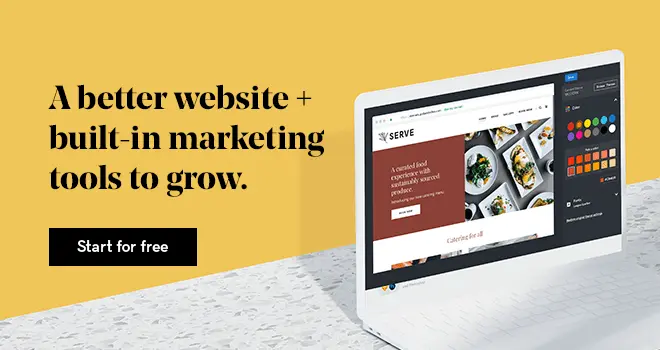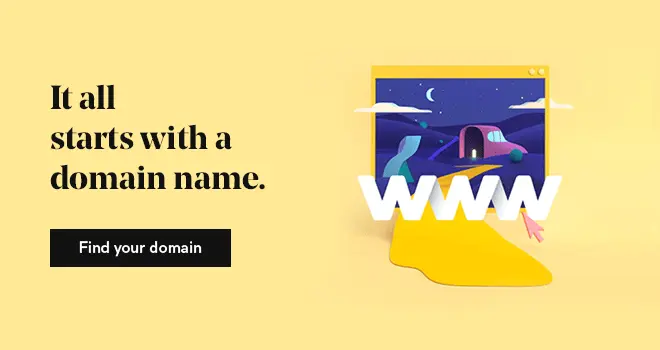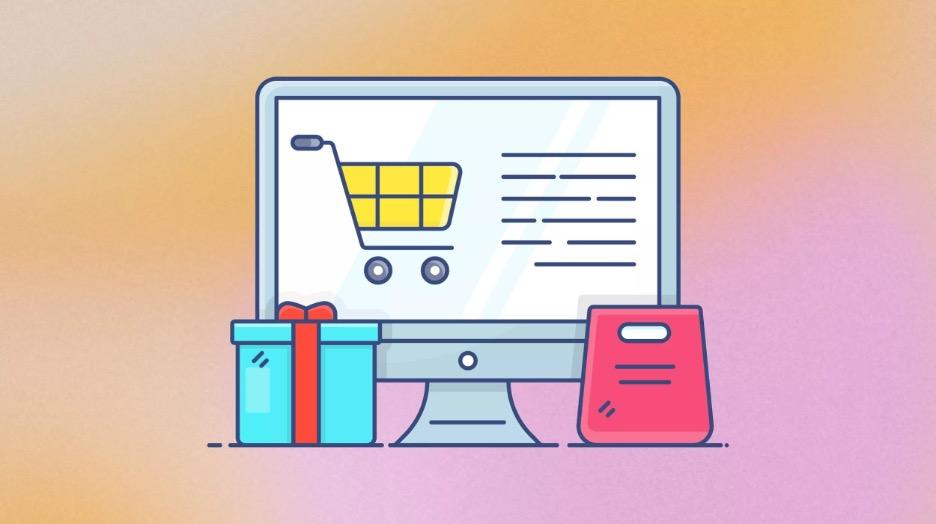Sales through online stores are expected to increase by more than 11% each year in the Middle East region. Currently, almost 90% of online goods bought in the Middle East are still shipped from outside countries, but this is changing rapidly. As a result, there is huge potential for revenue through e-commerce and online stores during this modern age in the MENA.
For small businesses and entrepreneurs with limited resources and knowledge of the e-commerce world, this comes as an opportunity and a threat at the same time, joining the trend and getting their online stores will provide them with a huge advantage because they are closer to the customers and know the market better than foreign businesses.
But this is easier said than done, or at least, used to be, GoDaddy’s E-store has made selling in the online world simpler. You may upload your products, content, and logo easily with the drag-and-drop feature.
However, for you to build a strong online store and start selling online you will need those 7 essential elements for your online store’s success.
Related: How to start an online store in 2024 – full guide
Here's what we will discuss in this article:
- A domain name for your online store
- Professional business email
- Favicon
- Payments and shipping
- Security
- User experience
- Contact
(1) A domain name for your online store:
In the physical world, to open up a business you need to have a name for it. The supermarket down the street from your place has a name displayed on the storefront, similarly, a domain name is your online address. You must pick the right online store name because that is how people will know you. Look at big brands, Apple, Ford, Tesla, and many others, very easy to remember.
Although free domain names are tempting, they are just unsustainable over the long term. Because no one will remember an online store called handbagsaysha.wordpress.com, customers remember easy names that they can relate to.
The right domain is your first step on your way to online success, choose a domain name now.
Brand consistency
In the realm of e-commerce business, a domain name is more than just an address; it's a powerful branding tool to build your online presence. Ensuring brand consistency between your e-commerce website and domain name establishes trust and makes your online business memorable. For startups, selecting a domain that aligns with your marketing strategy can set the foundation for future success. Moreover, incorporating keywords related to your e-commerce store can boost search engine optimization (SEO), driving more potential customers to your site.
SEO Considerations
An intuitive domain name can significantly influence your e-commerce website's search engine ranking. By integrating relevant keywords, you enhance search engine optimization, making it easier for online shoppers to discover your site. Consider terms that resonate with your target audience and reflect your e-commerce store's offerings. Remember, a strategic domain can be a game-changer in the competitive world of e-commerce sites.
(2) Build trust with a professional business email address for a professional online store:
Let’s establish something, if you own a store that sells shoes downtown, you will never use your personal mobile number or home number for your shop, right? The same goes for your online store.
A generic free email like name@hotmail.com won’t be a professional way to communicate with your store’s customers.
As an online store owner, you’ll use your email for more than communications, you’ll use it to send invoices, receive payments, customer support tools, etc.
To build trust with your customers you’ll need a professional email linked to your domain, you can start with info@domainname.com or contact@domainname.com and make sure that it’s displayed on your online store for users to contact you on.
Email marketing
Harnessing the power of email marketing is crucial for e-commerce businesses. A professional business email address not only builds trust but also reinforces your brand every time you reach out to your target audience. With the rise of mobile devices, ensuring your emails are high-quality and responsive is paramount. Such emails can direct potential customers to product pages, special offers, and other key elements of your e-commerce website.
Customer communication
When customers receive communication from a professional business email, it elevates the customer experience. It assures them of the legitimacy of your e-commerce store and fosters trust. Whether it's about a shopping cart issue, product descriptions, or general inquiries, a branded email address signifies commitment and professionalism.
(3) Favicon:
You never go to a job interview without wearing a shirt and a tie if you are a male or a professional work outfit if you are a female, right? It is what people see first. Well, your Favicon is one of the first things users see.
A favicon is a small 16×16-pixel icon that serves as branding for your website. Its main purpose is to help visitors locate your page easier when they have multiple tabs open.
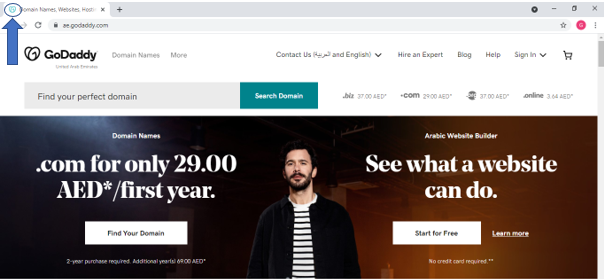
Studies have shown that 92% of users visiting an online store for the first time aren’t there to buy. What do you think it is then? Well, 45% are searching for a product or service, 25% are comparing prices or other variables, and more than one in 10 are looking for store details.
This means that shoppers will visit your store and a couple other stores AT THE SAME TIME, with all those tabs open while they jump between them, don’t you want them to find your online store easily by finding your logo there instead of Chrome’s icon?
Brand Recognition:
In today's digital age, where multiple tabs are open on browsers, a favicon acts as a beacon for your e-commerce website. It's a subtle yet important element of e-commerce website design that boosts brand recognition. When online shoppers navigate between sites, this small icon ensures your e-commerce store remains top of mind, reducing bounce rate.
User Experience:
An intuitive web design is incomplete without a favicon. It enhances the user experience by providing a visual cue, making site navigation seamless. Especially for e-commerce sites where the competition is fierce, like Amazon, every detail, including a favicon, contributes to retaining potential customers and ensuring they have a memorable shopping experience.
(4) Payments & Shipping:
When you build an online store, setting up payment methods and shipping is a critical part of it.
The more options you offer the more likely your customer uses one of them.
Imagine visiting an online store and finding products with great deals but the payment option available doesn’t suit you?
Try to offer your customers the option to pay by credit cards, debit cards, online wallets, gift cards, and even crypto currency if you can.
The GoDaddy e-store offers a variety of local payment solutions in the Arab region to build trust with your customers.
Multiple Payment Options
The modern e-commerce store caters to a global audience. Offering multiple payment options, from credit cards to e-wallets, ensures you cater to diverse customer preferences. An e-commerce platform that integrates various payment gateways provides flexibility and enhances the overall shopping experience.
Transparent Shipping and Return Information
Transparency is the cornerstone of a successful e-commerce business. Clearly outlining shipping timelines, costs, and return policies on product pages can significantly reduce cart abandonment. It assures potential customers of your commitment to their satisfaction, making them more likely to finalize their purchase.
Related: How e-commerce start-ups are shaping the future of logistics
(5) Security:
Your customers trust you with their addresses, phone numbers, names, email addresses, and most importantly, their credit cards’ details. It is natural that they expect you to provide security for their processes on your online store.
An SSL certificate goes a long way in building that trust because it authenticates the identity of the website (this guarantees visitors that they’re not on a bogus site) and it encrypts the data that’s being transmitted.
It helps keep user data secure, verify ownership of the website, prevent attackers from creating a fake version of the site, and convey trust to users.
HTTPS is the secure form of HTTP, which means that HTTPS websites have their traffic encrypted by SSL.
Most browsers tag HTTP sites – those without SSL certificates – as “not secure.” This sends a clear signal to users that the site may not be trustworthy – incentivizing businesses who have not done so to migrate to HTTPS.
SSL Certificates
In the world of e-commerce, where transactions are the norm, security is paramount. SSL certificates encrypt customer data, ensuring safe transactions. For an e-commerce website, having an SSL certificate not only builds trust but also improves search engine rankings. It's one of the mouse essential elements of e-commerce for any online business aiming for growth.
Regular Updates and Backups
The digital landscape is ever-evolving. Regular updates ensure your e-commerce platform remains secure and offers the best features. Backing up data safeguards against potential threats, ensuring your e-commerce store runs smoothly. Regular maintenance is a testament to your commitment to providing an uninterrupted shopping experience.
(6) The user experience through your online store:
The internet and online shopping have revolutionized the way customers engage with e-commerce platforms, making it incredibly convenient to shop from the comfort of their homes using mobile devices or computers. However, ensuring a user-friendly and responsive website design is paramount to retain these customers. High-quality layouts and quality images, especially product images, play a crucial role in enhancing the visual appeal of your online store. The search bar should be prominently placed for easy accessibility, ensuring usability is at its best.
Moreover, don't let your online store’s user experience be the reason they switch to your competitor. Make the navigation and checkout process as intuitive and brief as possible. Many e-commerce sites now offer the option to checkout without the need to create an account. Incorporate features that allow customers to autofill their details using their social media accounts like Facebook, Google, or even LinkedIn. However, also provide them the choice to set up an account. Additionally, showcasing customer reviews can instill trust and offer social proof, further enhancing the shopping experience.
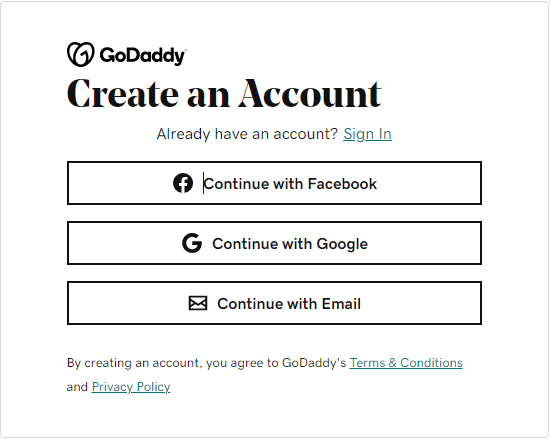
(7) Contact
Make it easy for customers to contact you, and have a “Contact Us” page easily accessible on your home page. Make sure that your customers can reach you easily.
They’re entrusting you with their credit card details after all.
Add your professional email address, phone number, a contact form, and a live chatbot if possible. We have already established that customers want everything at ease, and you must go out of your way to make everything available for them.
Once you have ticked every box on that list you may move on to your marketing efforts to get traffic and sales.


